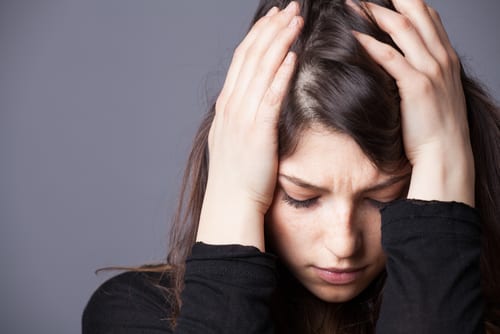
People with anxiety disorder cannot control worrying excessively about everyday things or events, which results in them being distressed emotionally, physically, and socially. There are several types of anxiety disorders such as social anxiety disorder, obsessive compulsive disorder, panic disorder and agoraphobia, and the most common one is the generalised anxiety disorder or GAD.
If you or someone close to you have been diagnosed with anxiety disorder, you should consult experts such as those from Act of Living. Meanwhile, here are some helpful ways on how to cope:
- Identify your triggers and learn how to manage them. Anxiety attacks usually have triggers. This means that certain situations cause you to have anxiety. This can be a bit challenging to figure out so you may want to enlist the help of your trusted friends and family, or perhaps a therapist.
There are also triggers that are more obvious such as caffeine, smoking, and alcohol. You have to observe what happens to you after you’ve had coffee, or the next day after a night of drinking. When you have identified which one of these triggers an anxiety attack, you have to limit your exposure to it or you can quit it altogether. Below are some more triggers of anxiety:
- Stressful work environment
- Traveling by flying or even driving
- Withdrawal from certain medications or drugs
- Traumatic experience
- Chronic pain
- Depression
- Phobias
If you cannot limit your exposure to triggers such as your work environment, you may want to consult with a therapist and learn how you can cope.
- Do yoga and meditation. Sometimes, when you find yourself in a situation that triggers an anxiety attack, all you need to do is walk away, sit down, relax, and take a deep breath. When you enroll in a yoga class, you will be taught some breathing exercises that will help calm your nerves down. Doing yoga for at least 15 minutes will help clear your mind and you can focus on what is actually worrying you.
If you are anxious about the future, ask yourself if there is something you can do about it right now. If the answer is “no,” then learn how to let it go until such time that you actually have the capacity to change the situation.
Like yoga, meditation will help you focus on the present. It will help you train the mind to dismiss negative thoughts that trigger an anxiety attack. However, meditation requires you to sit still for a long period. If this is a bit difficult for you to do, you can simply do yoga and incorporate meditation later when you are more disciplined. - Do cognitive behavioral therapy or CBT. This is a type of therapy that helps patients improve their mental health through psycho-social intervention. CBT modifies behaviors, negative thoughts, and emotions. It focuses more on solutions rather than digging up the cause of the problem and bringing focus there. It teaches patients to challenge and change their destructive behavior. When a patient has anxiety disorder, adopting CBT will help the patient identify what triggers the anxiety attack and then use proven strategies in order to overcome the issue.
- A healthy body can help keep anxiety away. The importance of taking care of the body can never be stressed enough. When you have a healthy body, you are helping the mind fight symptoms of anxiety. Eating the right type of food reduces anxiety. When you exercise, the brain releases chemicals called endorphins, a type of chemical that is responsible for making you feel good. Eating more fruits and vegetables will give you enough nutrients that your body needs.
- Take medication. Taking medication when you are having an anxiety attack can make you feel better. However, the risk is that you may become addicted.The anti-anxiety disorder never really goes away even if a long time has passed since your last attack. You merely manage the symptoms with pills such as valium and xanax. Note that you need to consult a therapist before you can be prescribed with such medications. You must carefully weigh your options if you want to go this route.
Conclusion
Anxiety disorder is not something that you can simply brush aside. When it is not addressed, it could seriously affect your way of life. You may not be able to function properly when you are at work or even when you are out with friends. In the beginning, it could be difficult to determine what causes your attacks, but when you do, you need to learn how to cope with it.
